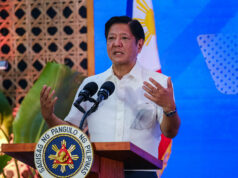Semirara proposes tax on firms buying its coal
SEMIRARA MINING and Power Corp. is proposing an alternative “win-win” solution to the government after asserting its right to be exempted from paying the excise tax on coal.
Semirara Chief Executive Officer Isidro A. Consunji told reporters last week the company recommended to the government that it instead impose taxes on power generation companies buying its coal products.
“If you’re just after tax generation, why don’t we offer you a solution that protects our tax exemption and revenue generation? Kung kami exempted, huwag mo i-exempt ang buyer namin (If we are exempted, then don’t exempt our buyers),” Mr. Consunji said, recalling his conversation with officials from the Department of Finance and Bureau of Internal Revenue.
Mr. Consunji was referring to Presidential Decree 972, also known as the Coal Development Act, which exempts Semirara from paying all taxes, except income tax.
Power generation firms, he said, will be amenable to the proposal since the excise tax can be passed on to the consumers under the rules of the Energy Regulatory Commission.
“It seems the concept is workable with them (government),” Mr. Consunji said.
The government’s new tax plan slapped a P50 per metric ton excise tax on coal, which would jack up electricity rates by two to three centavos per kilowatt-hour, he said.
Semirara has been paying a “royalty” to the Department of Energy, as stated in its coal operating contract with the government. The royalty payment goes to the national government, municipal government and barangay where the company operates.
Local government units are entitled to a 40% share of royalty proceeds from petroleum, coal, geothermal, hydrothermal and wind resources under the Local Government Code of 1991.
Semirara paid royalties equivalent to 14% of sales in 2017, significantly higher than the 1.5% that will be collected from the firm based on the new tax regime, Mr. Consunji said.
“We told them the coal industry is the most taxed sector of the extractive industries outside of petroleum except people don’t know about it,” Mr. Consunji said.
Semirara’s royalty payments to the Energy department reached P1.69 billion in the first half of 2017, nearly three times the P575 million it paid during the same period in the previous year, because it produced more coal and expanded its operations.
The net income contribution of Semirara to DMCI Holdings, Inc. rose 15% to P8 billion in 2017 from P6.9 billion a year ago on the back of a 20% growth in average coal prices and 21% jump in gross electric output. — Krista Angela M. Montealegre



